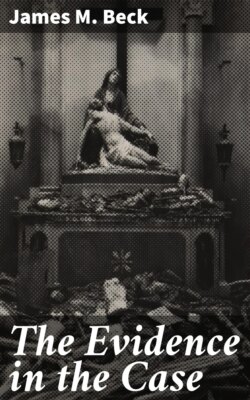Читать книгу The Evidence in the Case - James M. Beck - Страница 7
На сайте Литреса книга снята с продажи.
THE SUPREME COURT OF CIVILIZATION
ОглавлениеTable of Contents
Let us suppose that in this year of dis-Grace, 1914, there had existed, as let us pray will one day exist, a Supreme Court of Civilization, before which the sovereign nations could litigate their differences without resort to the iniquitous arbitrament of arms and that each of the contending nations had a sufficient leaven of Christianity or shall we say commonplace, everyday morality, to have its grievances adjudged not by the ethics of the cannon, but by the eternal criterion of justice.
What would be the judgment of that august tribunal?
It may be suggested that the question is academic, as no such Supreme Court exists or is likely to exist within the life of any living man.
Casuists of the Bernhardi school of moral philosophy will further suggest that to discuss the ethical merits of the war is to start with a false premise that such a thing as international morality exists, and that when once the conventionalities of civilization are laid aside the leading nations commence and make war in a manner that differs only in degree and not in kind from the methods of Frederick the Great and Napoleon, and that these in turn only differed in degree from those of Alaric and Attila. According to this theory, the only law of nations is that ascribed by the poet to Rob Roy:
